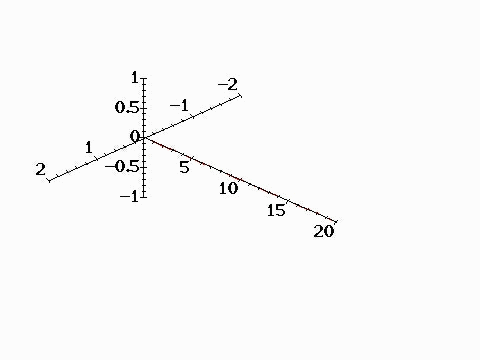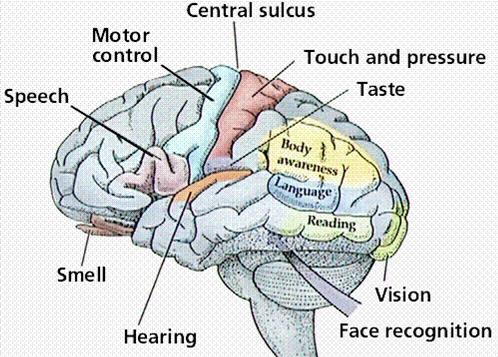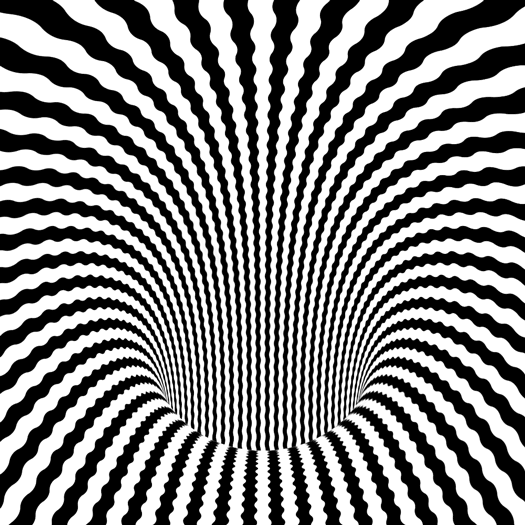Two means to opposing ends: sciences' dual character.
The metaphor | The Paradox | An Example | Physics | Bachelard | metaphor means? | Commentary | Imagery | Lessons

"What poet will furnish us with the metaphors for which the new language cries out? How can we possibly imagine the amalgam of space and time? What supreme view of harmony will enable us to accord repetition in time with symmetry in space?"
Gaston Bachelard
a figure of speech used to illumine and vivify the message of a thought as expressed in a phrase of related words when comparing two ordinarily unlike concepts, things, or experiences.
An indispensable tool for good speaking, writing, and thinking.
Thought without metaphors leads to taking things literally, too literally to be accurate.

"We do not yet fully understand such frequency dependent reactions, because our temporal intuitions are still inadequate, limited by the ideas of absolute beginning and continuous duration."
Gaston Bachelard [1934], (p. 78)
The metaphor | The Paradox | An Example | Physics | Bachelard | metaphor means? | Commentary | Imagery | Lessons
![]()
Bachelard's Paradox
"every person who attempts to learn science makes use of not one but two metaphysical systems, & one contradicts the other!"rationalism and realism"
For convenience let us attach provisional names to the to the two fundamental philosophical attitudes that coexist so peacefully in the modern scientific mind: rationalism and realism, to use the classical terminology."
"Science is a product of the human mind, a product that conforms to both the laws of thought and the outside world. Hence it has two aspects, one subjective, the other objective; and both are equally necessary, for it is impossible to alter the laws of the mind as it is to change the laws of the universe."
Bachelard quotes Edmond Bouty, La Verite Scientique, (1908), p. 7.
G. Bachelard, The New Scientific Spirit, pp. 1-2.
| systems | rationalism | realism |
|---|---|---|
| local focus | mind | universe |
| rules | laws of thought | the outside world |
 |
 |
 |
![]()
The metaphor | The Paradox | An Example | Physics | Bachelard | metaphor means? | Commentary | Imagery | Lessons
![]()
Light
"What actually emerges from a molecule on which a beam of light impinges?"
p. 76.
"the most determined rationalist daily submits to the instruction of a reality whose ultimate structure eludes him."
p. 2.
"The terminology in physics is derived from seventeenth century materialist ideas."
Whitehead, Science and the Modern Word, p. 200.
"It becomes clear that the problem is no longer one of collision, rebound and reflection, nor is it a simple exchange of energy; rather, there is a complex set of interactions between light energy and molecular energy, governed by complicated numerical rules."
p. 76.
"Take any compound of chlorine that you like : Ordinary chemical manipulation of always yield the the same mix of chlorine 35 and chlorine 37. But if one takes a sample of phosgene (COCl2) and exposes it to a beam of ultraviolet light whose frequency corresponds to the resonance band of of the chlorine 35 isotope, the molecules of phosgene containing that isotope dissociate to releease just chlorine 35 and not chlorine 37.
"This is an example of how radiation can cause matter to be liberated. We do not yet fully understand such frequency dependent reactions, because our temporal intuitions are still inadequate, limited by the ideas of absolute beginning and continuous duration. Such an unstructured idea of time would seem at first glance to allow no discrimination between frequencies. But this simple view is illuory because it sees time as continuous, where as in microphysics time is discontinuous. Time acts through repetition more than through duration."
pp. 78-79.
"Light --of a particular frequency-- is an excellent 'rhythmic agent' for probing the space-time complex of matter.""Once radiation is allowed to act as an intermediary between molecules and regarded as an integral part of the real, it becomes possible to distinguish between substances that would otherwise appear to be identical."
p. 79.
"The chemist thus finds himself confronted with a complex ensemble of matter-cum-energy of which the only possible description is statistical, since the molecules are all different and the distribution of energy is not uniform."energy factors are gradually assuming greater and greater prominence."
p. 80.
Whitehead, Science and the Modern Word.
The metaphor | The Paradox | An Example | Physics | Bachelard | metaphor means? | Commentary | Imagery | Lessons

Bachelard's studies of the history and philosophy of science in such works as Le nouvel esprit scientifique ("The New Scientific Spirit ") (1934) and La formation de l'esprit scientifique ("The Formation of the Scientific Spirit ") (1938) were based on his vision of historical epistemology as a kind of psychoanalysis of the scientific mind, or rather of the psychological factors in the development of sciences. For instance, he takes the example of Heisenberg's first chapters of the Physical principles of the quantum theory, where he alternatively defends a corpuscular theory and an undulatory theory, correcting each by the others (The New Scientific Mind, IV). This, claims Bachelard, is an excellent example of the importance of psychological training in sciences, as one should correct spontaneous defaults by taking the opposite stance.
In the English-speaking world, the connection Bachelard made between psychology and the history of science has been little understood. Bachelard demonstrated how the progress of science could be blocked by certain types of mental patterns, creating the concept of obstacle épistémologique ("epistemological obstacle"). One task of epistemology is to make clear the mental patterns at use in science, in order to help scientists overcome the obstacles to knowledge.
Bachelard argued against Auguste Comte's positivism, which considered science as a continual progress, that it had been superseded by such scientific developments as the theory of Relativity, which demonstrated the discontinuous nature of history of sciences.
Through his concept of "epistemological break", Bachelard underlined the discontinuity at work in the history of sciences — the term itself is almost never used by Bachelard, but became famous through Althusser. For this reason, he was a tough critic of Émile Meyerson, who supported a continuist view of the history of sciences.
He showed that new theories integrated old theories in new paradigms, changing the sense of concepts (for instance, the concept of mass, used by Newton and Einstein in two different senses). Thus, non-Euclidean geometry did not contradict Euclidean geometry, but integrated it into a larger framework.
Gaston Bachelard (June 27, 1884 – October 16, 1962) was a French philosopher, historian of science, critic of science, and poet.
Bachelard was a postmaster in Bar-Sur-Aube, and then studied physics before finally becoming interested in philosophy. He was a high school teacher, then professor at Dijon from 1930 to 1940 and then became the inaugural chair in history and philosophy of the sciences at the Sorbonne.
His most important work is in poetics and the philosophy of science. He introduced the concepts of epistemological obstacle and epistemological break (obstacle épistémologique et rupture épistémologique) and influenced many French philosophers in the latter part of the twentieth century, among them Thomas Kuhn, Michel Foucault and Louis Althusser. His best-known work is The Poetics of Space.
The metaphor | The Paradox | An Example | Physics | Bachelard | metaphor means? | Commentary | Imagery | Lessons

Science is our word for knowledge and is derived from the Indo-European word to cut or divide. The word has a general and specific meaning that depends on the context in which the word is used.
GENERALLY:
TO KNOW, determine; DISTINGUISH; DISCERN, in a systematically rational manner or fashion.
SPECIFICALLY:
systematized study derived from
• Observation
• Study, heuristics, and
• Experiment
ETYMOLOGICALLY: it is an erroneous translation of Epistomenikos ! [Greek for knowing or pertaining to GNOSTIKOS, esoteric knowledge.] how we know.
Thus social, behavioral, and environmental sciences all have a different connotation from the biological or physical sciences. The oldest science is astronomy and among the newest are ecology, psychology, & microbiology.
The metaphor | The Paradox | An Example | Physics | Bachelard | metaphor means? | Commentary | Imagery | Lessons
The Paradox at the heart of modern physics is:
Rules for quantum mechanics based on experimentation contradict the rules for gravitational mechanics based on experimentation.
Brian Greene, Stephen Hawking, Leon Lederman, Alvin Weinberg, Frank Wilczek, etc.

"The characteristic of scientific progress is our knowing that we did not know."
"The great function of poetry is to give back to us the situations of our dreams. The repose of sleep refreshes only the body. It rarely sets the soul at rest. The repose of the night does not belong to us. It is not the possession of our being. Sleep opens within us an inn for phantoms. In the morning we must sweep out the shadows.
The subconscious is ceaselessly murmuring, and it is by listening to these murmurs that one hears the truth.
There is no original truth, only original error."
Gaston Bachelard, his biographical sketch.
The metaphor | The Paradox | An Example | Physics | Bachelard | metaphor means? | Commentary | Imagery | Lessons
"It is in the works of the great ecclesiastic and mathematician Nicholas Oresmus, who died in 1382 as Bishop of Lisieux, that we find the metaphor of the universe as a vast mechanical clock created and set running by God so that 'all the wheels move as harmoniously as possible.' It was a notion with a future: eventually the metaphor became a metaphysics."
Lynn White Jr. quotes L. Mumford, Technics & Civilization,
(New York, 1934), pp. 12-18; in Medieval Technology and Social Change (Oxford:
1962), p. 125.
"When we want to express something for which language has no symbols we often resort to a metaphor," she instructs; "an idea expressed in language which functions as a symbol."
"often we have difficulty distinguishing the symbolic expressive form from what it conveys."
Susanne Langar
The metaphor | The Paradox | An Example | Physics | Bachelard | metaphor means? | Commentary | Imagery | Lessons
Paradoxes are important indicators of the incomplete character of knowledge and language with respect to fully describing real events.
Pars, Pars
para is the Greek preposition meaning alongside, beside, on one side of, or beyond.
doxa, doxa
doxa is an interpretation contrasted with gnosis, or knowing.
Doxa, from wich we make the word orthodox means a statement or belief contrary to perceived opinion; a proposition that on the face of it appears self-contradictory and is applied to descriptions of phenomena conflicting with preconceived notions.Aristotle attributed the invention of dialogues -- hence the dialectical method of discerning error -- to ZENO of Elea (490-430 BCE) whose use of paradoxes to refute his opponent's opinions influenced Socrates & Plato.
Einstein the man | His relativistic insights | On Albert Einstein | The famous equation's meaning
Gell-Mann | Margulis | Mayr | Tattersall | Wilzeck
![]()
The metaphor | The Paradox | An Example | Physics | Bachelard | metaphor means? | Commentary | Imagery | Lessons